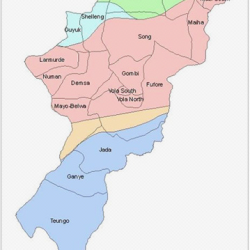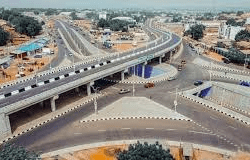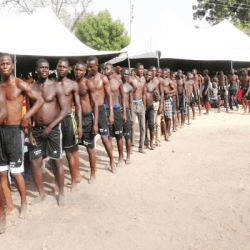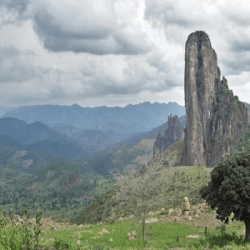The 21 Local Government Areas (LGA) in Adamawa State and their headquarters are:
| LGA | Headquarters |
| Demsa | Demsa |
| Fufore | Fufore |
| Ganye | Ganye |
| Girei | Girei |
| Gombi | Gombi |
| Guyuk | Guyuk |
| Hong | Hong |
| Jada | Jada |
| Lamurde | Lamurde |
| Madagali | Madagali |
| Maiha | Maiha |
| Mayo-Belwa | Mayo-Belwa |
| Michika | Michika |
| Mubi North | Mubi |
| Mubi South | Gella |
| Numan | Numan |
| Song | Song |
| Shelleng | Shelleng |
| Toungo | Toungo |
| Yola North | Jimeta |
| Yola South | Yola |

Adamawa
Adamawa is a State in Nigeria. It is diverse with many ethnic nationalities. Those nationalities have various ways of life.
You’ll be thrilled at the nutritious foods, arts, and festivals.
You can interact with community leaders, natives and early/modern farmers, cattle rearers.

Adamawa State was created on 27th August, 1991. It is located in the North Eastern part of the country. Prior to its creation in 1991, it was part of the North Eastern State from 1967 to February 1976 and Gongola State 1976 – 1991.
The State shares border with Gombe State to the North, and Borno State to the North East, while to the West it is bordered with Taraba State as well as the Republic of Cameroon to the East.
Adamawa State has a total area of 39,742.12 square kilometers. This is about 4.4 percent of the land area of Nigeria. The 2005 projected population of the State is 3,106,585, giving population density of 68 persons per square kilometer.
The State lies between 8O0 N and 11N and longitude 11.50 and 13.50 E. The State generally is characterized by many rivers; the major one is the River Benue whose source is from the highlands of the Cameroon and flows southwards to join the River Niger.

Agro based economy
ECONOMIC RESOURCES
Adamawa State is blessed with abundant human and material resources, readily at the disposal of every investor to harness. The state has a vast fertile land suitable for farming and other economic activities.
SOLID MINERALS FOUND IN ADAMAWA STATE
Solid minerals found in the state include: Feldspars, Flourspar, Marble, Gypsum, Magnesite, Tantalite, Rock crystal, Laterites, Topas, Sandstones, Mercury, Glass Sand, Zircon, Spinel, Emerald, Graphite, Beryil, Tourmaline, Mica, Iron ore, Clay Minerals, Diatomite, Coal, Garnet, Aquamarine, Gold Dust, Zoisite, Cassaterite, Agates, Amethyst Chalcopyrite, Kaolin, Limestone, Chalcedeny, Onyx, Barytes, Zinc, Tin, Uranium, Quartz, Mica, Diamond, Wolframite, Calumbite, Platinum, Ruby etc. These minerals are also found in Commercial quantity.


STAPLE FOOD
Maize, Millet, Sorghum, Yam, Rice, Beans. AGRICULTURAL PRODUCTS Maize, Millet, Cassava, Sorghum, Yam, Groundnuts, Rice, Cotton, Cassava, Cattle, Sugar Cane, Beans, Sweet Potato.
Some major market days in Adamawa
| DAY | TOWNS | COMMODITIES |
| Sunday | Dong, Gereng, Kiri, M/Farang, Song, Fufore, Kojoli, Michika, Shuwa, Muva, Kala’a, Gella. | Yam, Rice, Fish (Smoked and Fresh Livestock) etc Potash, Hides & Skins. |
| Monday | Hong, Jada, Muchala, Ghumchi, Mayo Bani, Gyawana Chikila | Yam, Beans, Groundnuts, Maize, Cassava, Sugar Cane, Mangoes etc. |
| Tuesday | Borrong, Labondo, Bazza, Nassarawo Jereng Daksami, Garkida | Fish (smoked and fresh), pigs, beans, bananas, cassava, livestock & grains. |
| Wednesday | Ngurore, Mubi, Konkol, Banjiram, Michika, Pella, Gulak, Loko, Mbulo | Livestock, hides ans skin, yam, maize, millet, Irish Potatoes, smoked fish, potash. |
CLIMATE
The climate of the State is characterized by wet season from April to October, while the dry season lasts from November to March.

The average rainfall for the State is 79mm in the Northern parts and 197mm in the Southern parts. The wettest months are August and September. The mean annual temperature is around 28 degrees centigrade. There is also the harmattan period when the dusty – laden North – Easterly trade winds from the Sahara – Desert have a marked effect on the State climate. The period is cold and dry with an average temperature of 15.20C and 39.70 maximum.
VEGETATION
There are two notable vegetational zones in the State; the Sub-Sudan Zone and the Northern Guinea Savannah Zone. The Sudan Zone is marked by short grasses and short trees, commonly found in the Northern parts of the State. In the South, the vegetation is thick WITH tall grasses and trees.
COMMUNICATION
Adamawa State has a modern system of communication looking with other parts of the Country, as well as the outside world through the telephone and other telecommunication services like the global system for Mobile Telecommunication (GSM), Internet etc.
Telecommunication operators in the State are putting more efforts to extend their coverage in other parts of the State which are not covered by their services.

There are over 80 ethnic groups found in Adamawa State, each with its distinct historical and cultural heritage yet understanding and accommodating each other. Some of the ethnic groups include: Chamba, Mumuye, Dabanci, Dangsa, Higgi, Nyandang, Sukur, Margi, Gudu, Hona, Mboi, Ga’anda, Yungur, Bwatiye, Mbula, Bala, Bille, Sate, Koma, Bura, Lala, Gwaba, Njanyi, Fali, Gude, Holma, Lunguda, Kanakuru, Jen, Matakam, Laka, Wula, Lilba, Kwah, Waja, Tambo, Libo Mwama, Kilba, Viengo and others.
ETHNIC/SOCIAL ORGANIZATIONS IN ADAMAWA STATE
There are quite a number of ethnic organizations in the State. The groups are made up of people with the same ethnic background and are also cultural in orientation. The major organizations found in the State include the Igbo Community, Yoruba Community, Igala Welfare Association, Urhobo Prograssive Union, Edo Union, Isoko Union, Kaduna State Development Association etc. Social and development clubs are also found in the State; Zumunci Social Club, Unity Social Club, the Gamzaki; Rotaract Club and many more are all found in the State.
RELIGION
There are two major religions in the State; Christianity and Islam.
SOME TRADITIONAL RULERS
| NAME | TITLE | STATUS |
| Dr Muhammamdu Barkindo Aliyu Musdafa | Lamido Adamawa | First Class |
| Alh. Abubakar Isa Ahmadu CFR | Emir of Mubi | First Class |
| Homun Asaph Zadok | Hama Bachama | First Class |
| Alh. Umaru A. Sanda OON | Gangwari Ganye | First Class |
| Homun Alhamdu Gladstone Teneke MFR | Hama Batta | First Class |
| Amna Abdullahi K.D. Managina | Amna Shelleng | First Class |
| Kwande Wilfred K. Kimde | Kwandi Nunguriya | First Class |
| Murum Joram J. Fwa | Murum Mbula | First Class |
MAJOR TOWNS
Yola, Numan, Mubi, Gombi, Ganye, Michika.
AGRICULTURE
Farming is a major occupation. Majority of the people in Adamawa State are farmers.

Cattle rearing are also an occupation, while village communities living on the banks of Rivers Gongola and Benue and their tributaries in the State engage in fishing and farming.





